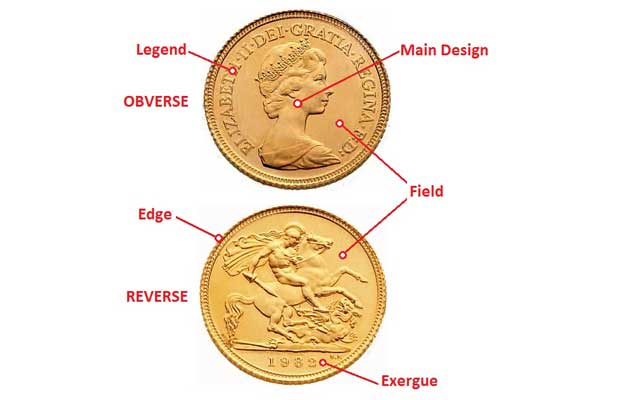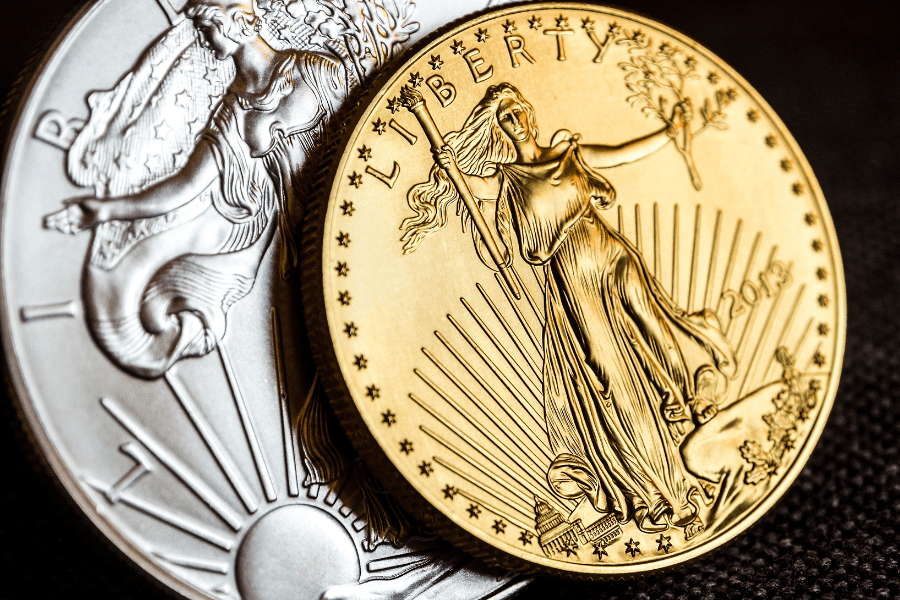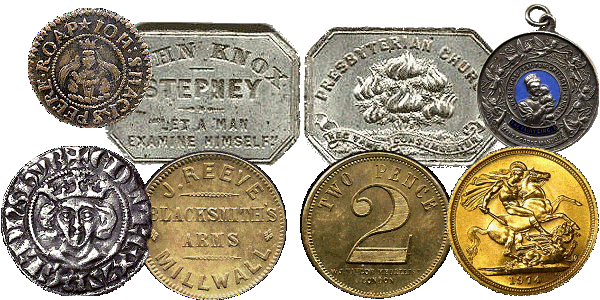New Advice On Selecting Quarter And Banknote Rarity
New Advice On Selecting Quarter And Banknote Rarity
Blog Article
How Can I Make Use Of The Numismatics Database To Conduct Research On Central Banks?
For efficient information gathering and analysis, it is necessary to think about a number of aspects and steps when using databases to conduct numismatic analyses regarding central banks.
Selection of a database: Select a database that is specialized in numismatic or financial information like those provided by financial institutions, academic libraries as well as numismatic associations. Numista is one such example of a database, as are those that are part of the World Bank or academic journals repository sites like JSTOR.
The Methodology of Search: First, define your research objectives. Are you seeking historical designs for coins of a specific central bank? Or are you most interested in economic policy depicted by the coin's design or the impact numismatic decision has on an economy? Searching with keywords like "central bank coins"," numismatics, and central bank names will help you in defining your search.
Data Collection: Use advanced search options provided by database to narrow articles, reports or data sets that are relevant. Historical documents, policy documents and numismatic books that provide information on coin types and minting locations as well as historical contexts. You can find them.
Analysis: Analyze the data you've collected to discover patterns and trends. Compare how different central bank approaches coinage. Study the evolution of design patterns as time passes. Examine the connections between numismatic trends and broader economic policies or past developments.
Cross-Referencing: Validate your findings by cross-referencing information from different sources within the database. This provides a more complete understanding, and eliminates the danger of relying solely on biased data points.
Documentation - Document your findings with care, mentioning the sources utilized and the methodology used. Documentation is essential to use for professional or academic reasons and increases the credibility of your study.
Keep up-to-date The numismatic database and central bank policies change over time. Check the database regularly to stay informed about new research findings, the most recent coin catalogs, or changes in central bank policy which could impact numismatic trends.
These steps can help you make use of the power that databases provide to conduct thorough research and gain valuable insights into numismatics. This approach will allow you to study historical and current aspects of coin circulation and production as well the wider economic consequences. See the most popular here on coin for more info including real, dollar, banknote value, silver coins, mint condition, commemorative, banknote authenticity, lira, currency grading, circulated and more.
How Do I Search For Coin Dealers On A Numismatics Database?
To study numismatics with respect to dealers in coins and dealers, you'll need databases that focus on numismatic trade and dealer listings. Additionally, you can use historical transactions and market trends. Here is a methodical procedure for carrying out this kind of research Database Selection: Choose databases that are specialized in dealer listings and numismatics. Market places for numismatics online and dealer directories run by numismatic organizations (such the Professional Numismatists Guild), and auction house databases are a few examples.
Define Research Focus: Specify your research objectives. Are you interested to learn about the background and history of coin dealers specifically price, market trends, or market trends, or the impact that dealers have had on the numismatic collecting trend? Set out your objectives to help guide your study.
Search Strategy: Make use of keywords like "coin dealers," "numismatic market," "dealer directories," and include specific names of dealers or geographical regions if applicable. Advanced search options allow you to search by date, type of dealer (such antique coins modern coin, antique coins, rare coins) and type of transaction (auctions, personal sales, auctions, etc.).
Data Collection: Access information on coin dealers including their names of business and locations, their specialties, years of operation, as well as historical profiles. Details about dealers who have contributed significantly to numismatics and collecting or scholarly communities. Also, collect details on their participation in notable sales and auctions.
Analysis: Examine information to better know the role dealers play in numismatics. Study the role played by dealers in influencing market changes.
Cross-Referencing Check what you've discovered by cross-referencing data from auction records, databases, and historical archives. This will allow you to make sure that the research you conduct is complete and accurate. This will also give you an understanding of the roles and contributions played by coin dealers.
Documentation. Note your research findings by citing sources and noting any methodologies that you utilized. Note the database's names as well as the search terms and relevancy of each source to your research.
Keep up-to-date: Market trends, auctions, and new dealer entry points are all part of the evolution of the numismatic trade and dealer landscape. Keep updated by keeping the track of news from auction houses for numismatics, societies and online marketplaces to stay on top of the latest developments.
These steps can help you make use of databases to study the numismatics of dealers in coins. This approach enables a comprehensive study of the historical profile of coin dealers, their market influence, and scholarly contributions made by coin dealers to the numismatic field providing valuable insights on the collecting practices and market dynamics over the course of time. View the top commemorative examples for more examples including bullion, coin news, coin grading, banknote show, banknote rarity, currency exhibition, central bank, banknote authenticity, quarter, euro and more.
How Can I Research Numismatics To Help Historians And Researchers With Databases?
For conducting such research, here's a systematic approach: Database selection: Choose databases that specialize in historic archives, numismatics or publications, academic journals and institutional repositories. A systematic approach is provided to help you conduct this research. JSTOR and Google Scholar are excellent examples, as well as journals of numismatic societies (such the American Numismatic Society), university library databases, and historical archives.
Define Research Focus: Specify your research objectives. Are you interested in the historical context of objects in the numismatic field as well as the methods of study employed by historians working in the field of numismatics specific numismatic topics studied by researchers, or the research contributions made by researchers to the numismatic world? Find out what you are looking for to help you narrow your search.
Search Strategy: Make use of keywords such as "numismatics," "numismatic research," "historical coins," and also include particular historical periods, geographical regions or numismatic themes, if applicable. You can use advanced search features to sort results by date, type of document (such as articles, dissertations and conference papers) as well as author affiliations.
Data Collection: Search for details related to numismatics including scholarly papers and research papers. Specific information such as names of books, authors, abbreviations, methods, and historical contexts are crucial to record. Search for databases that permit users to access digital research or numismatic collections.
Analysis: Examine data to comprehend historical and numismatic scholars' methods and their interpretations. Analyze how numismatics-related artifacts are used to contribute to the narratives of historical events or studies in culture. Examine the results and methods of researchers studying different numismatic topics.
Cross-Referencing - Check your findings by cross-referencing databases as well as academic publications, and institutional repository. This will ensure that your research is reliable and complete, providing you with an accurate picture of research.
Documentation: Documenting your findings is essential. Note sources and the methods used. Keep track of specifics such as the databases that you accessed, the search words you searched with, as well as how each source contributes to your research.
Stay up-to-date: Research in numismatics and academic publications continue to grow. Stay up-to-date by logging on to updates from academic journals as well as numismatic society websites.
These steps can help you utilize databases to investigate the numismatics of historians, researchers, and other. This allows for an in-depth investigation into the methods, historical interpretations, academic contributions, as well as the historical contexts that influence the understanding numismatic artifacts. Check out the top rated home page for coin production for site recommendations including bank, coin club, austrian coins, krona, currency appraisal, bullion coins, coin history, numismatic investment, coin series, coin value and more.
How Do I Utilize The Database To Look Up Numismatics With Regards To Online Forums And Communities?
This involves using online communities and forums where enthusiasts, experts, and collectors can share their knowledge and discuss current trends or display their collections. This is a methodical way to conduct such research. For instance, forums like CoinTalk on Reddit and r/Coins on Facebook and other communities that are specialized in numismatics.
Define Research Focus: Specify your research objectives. Do you want to learn about the latest trends in collecting Do you want experts who can provide advice on numismatics, authentication, and grade? Find out what you're trying to find in order to narrow your search.
Search Strategy - Choose terms that are relevant to your interests (such as "numismatic groups," "coin communities," or "numismatic online discussions") Include particular keywords (such as coins from the past modern money, contemporary currency, or paper currency), along with keywords related your research question. Use the search functionality within each platform to locate relevant threads and discussions.
Data Collection: Get access to the data contained in threads, discussions, or articles on online forums. Learn about the strategies for collecting as well as coins markets, trends in the market and personal experiences of coins and numismatic finds. Also, discuss historical or cultural aspects related to coinage.
Analysis: Analyze data in order to comprehend the opinions, expertise and experiences of members of the online community of numismatics. Examine the veracity of the information based on the experience of the contributors, the consensus between members on particular subjects, and the quality of the discussions.
Cross-Referencing. Verify what you've learned by comparing information from various forums and communities. Review the information across various platforms to gain a greater knowledge of trends in collecting, market sentiments and professional advice from the numismatic world.
Documentation - Document your findings in a systematic way by citing threads, contributors, and discussions as required. Note key insights, opinions and trends that you have seen in online forums and community.
Be involved Be Active: Ask questions and take part in the discussions to gain insight and build connections with fellow members of the numismatic group. Stay up to date with threads that are new.
Online forums can be used to look up numismatics research by following these simple steps. This gives you access to the collective expertise and expertise of a broad array of experts and collectors. You will get valuable information on various aspects related to coin collecting, identification and appreciation. Take a look at the most popular https://zlatemince.cz/ for blog recommendations including austrian coins, forint, coin book, design, currency grading, currency forum, coin news, slovak coins, penny, coin storage and more.
What Can I Do To Find Out More About Industry Consultants By Using The Numismatics Database?
To conduct research on numismatics, it is important to utilize databases that contain information on industry reports individuals, consultants, and numismatic societies. The following is a step-by-step guide to conducting this research:Database selection: Pick databases that specialize in publications, reports and industry reports as well as consulting firms. Websites of business directories, sites of consulting firms, magazines from the numismatic societies and databases that are specific to an industry are examples.
Define Research Focus: Specify your research objectives. You might be interested in consulting services for numismatic business as well as market analysis reports on numismatics, or the expertise of consultants in certain numismatic fields. Define what you're looking for to limit your search.
Search Strategy: Add keywords like "numismatic consultants", "numismatic consulting firms", "market analysis reports for coins" and, if relevant, include geographic areas or areas of specialization. Advanced search options allow users to filter their search by date, consultant specialty and the type of consulting service provided.
Data Collection: Get access to data on firms that specialize in numismatics and industry experts offering services to numismatic businesses. Get details on consultant profiles, specializations (market analysis collecting management, and authentication) as well as testimonials from customers and reports written by the firm.
Analysis: Analyze and understand the role and contribution of consultants from industry in numismatics. Analyze the skills and strategies that consultants employ to offer advice on numismatic investment, market trends, and collection strategies for management.
Cross-Referencing Check your findings by cross-referencing data from different databases, consulting firms directories, numismatic publications, and industry reports. This ensures completeness and accuracy of your research and provides an extensive view of the numismatics consulting landscape.
Documentation: Record your findings in a systematic manner, citing sources and noting the methodologies you employed. Provide a detailed description of the databases you used, search words, and relevance of the sources you've used to answer your questions.
Stay updated Market trends in numismatics are evolving in response to economic developments and regulatory updates. Keep up-to current with the latest trends in the industry by keeping an eye out for updates from websites of consulting firms and industry reports.
By following these steps, you will be able to effectively use databases to explore the numismatics industry in relation to consultants. This method allows a detailed analysis of the advisory services offered, the market analysis performed, and the strategic insight consultants offer within the numismatics business. Additionally, it provides insightful perspectives on investments and business operations as well as market dynamic. View the most popular banknote authenticity recommendations for site tips including banknote news, currency history, banknote auction, historical currency, banknote album, bullion, silver, banknote value, nickel, coin mintmark and more.